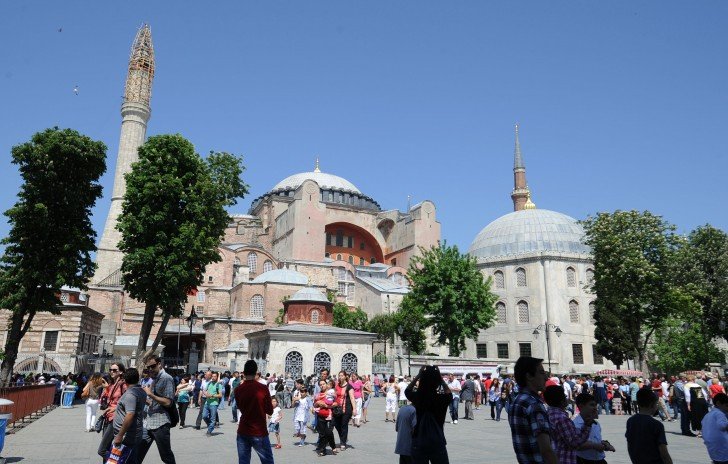Headlines
First prayers in Hagia Sophia on July 24: Erdogan

Istanbul, July 11 The first prayers at Istanbul's Hagia Sophia, a 1,500 year old Unesco World Heritage site which has now been converted into a mosque, will take place on July 24, Turkish President Recep Tayyip Erdogan said.
"We plan to open the Hagia Sophia to worshipping on July 24 with Friday prayers," Xinhua news agency quoted Erdogan as saying while addressing the nation on Friday.
"Like all our mosques, the doors of Hagia Sophia will be wide open to locals and foreigners, Muslims and non-Muslims," he added.
Earlier on Friday, the Turkish State Council approved the conversion of the historic museum into a mosque.
"It was concluded that the settlement deed allocated it as a mosque and its use outside this character is not possible legally," the Council said in its ruling.
"The cabinet decision in 1934 that ended its use as a mosque and defined it as a museum did not comply with laws."
In his address to the nation, Erdogan said that the country would welcome every view on this matter, "but the issue of what purpose the Hagia Sophia will be used for concerns Turkey's sovereign rights".
Shortly after the Council's announcement, the first call to prayer was recited at Hagia Sophia and was broadcast on all of Turkey's main news channels, the BBC reported.
The cultural site's social media channels have now been taken down.
Built 1,500 years ago as an Orthodox Christian cathedral, Hagia Sophia was converted into a mosque after the Ottoman conquest in 1453.
In 1934 it became a museum and is now a Unesco World Heritage site.
Islamists in Turkey long called for it to be converted to a mosque but secular opposition members opposed the move. The proposal prompted criticism from religious and political leaders worldwide.
Friday's decision has also led to widespread criticism.
The Unesco has said it "deeply regrets" the decision to turn the museum into a mosque and called on the Turkish authorities to "open a dialogue without delay", the BBC reported.
The organisation had urged Turkey not to change its status without discussion.
The head of the Eastern Orthodox Church has condemned the move, as has Greece - home to many millions of Orthodox followers.
The Church in Russia, home to the world's largest Orthodox Christian community, immediately expressed regret that the Turkish court had not taken its concerns into account when ruling on Hagia Sophia.
It said the decision could lead to even greater divisions.
Turkey's most famous author, Orhan Pamuk said the decision would take away the "pride" some Turks had in being a secular Muslim nation.
"There are millions of secular Turks like me who are crying against this but their voices are not heard," he told the BBC.
In a statement, US State Department spokesperson Morgan Ortagus said: "We are disappointed by the decision by the government of Turkey to change the status of the Hagia Sophia.
"We understand the Turkish Government remains committed to maintaining access to the Hagia Sophia for all visitors, and look forward to hearing its plans for continued stewardship of the Hagia Sophia to ensure it remains accessible without impediment for all."













































